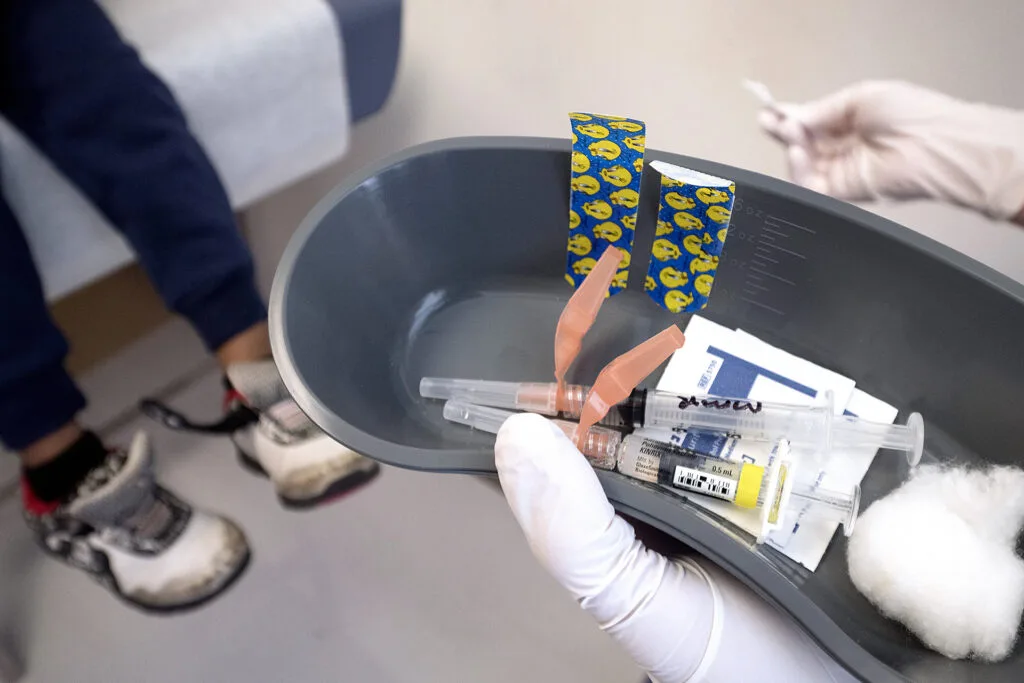Officials Say Social Media Plays a Role in the Spread of Vaccine Misinformation

March 7, 2019
Share
More than 200 individual cases of measles — which the U.S. declared was eliminated in 2000 — were confirmed across 11 states in the first two months of 2019. In Washington state, where more than one-third of the cases have been documented, the governor declared a state of emergency in January.
Against this backdrop, a new study published in the Annals of Internal Medicine on Monday reinforced the scientific consensus that there is no link between the measles-mumps-rubella (MMR) vaccine and autism. The researchers looked at the cases of more than 650,000 Danish children who were born between 1999 and 2010. Over time, 6,517 children were diagnosed with autism.
Comparing rates of autism between children who received the MMR vaccine and those who were unvaccinated, the researchers found that “the study strongly supports that MMR vaccination does not increase the risk for autism.” The study also found no evidence of the MMR vaccine triggering autism among children who had a sibling with the disorder.
As they combat the current outbreak of measles, which is highly dangerous, health officials have tried to emphasize the safety of vaccines and urge immunizations. One enduring misconception about vaccines stems from a now-retracted and repeatedly debunked medical journal article from the late 1990s that implied a link between the MMR vaccine and autism. Despite plenty of evidence to the contrary, that myth — and others like it — has endured. And health officials and lawmakers say that social media has played a key role in the spread of misinformation.
A Senate committee held a hearing Tuesday on vaccines and preventable outbreaks. “There’s a lot of misleading and incorrect information about vaccines that circulates online throughout social media,” said Sen. Lamar Alexander, R-Tenn., chairman of the Senate Committee on Health, Education, Labor & Pensions. He blamed “internet fraudsters” for “preying on the unfounded fears and daily struggles of parents” and “creating a public health hazard.”
Many of the people who testified before the committee brought up the spread of vaccine misinformation online, including an 18-year-old Ohio high school student who decided to get vaccinated against his mother’s wishes.
“My mother would turn to anti-vaccine groups online and on social media looking for her evidence and defense, rather than health officials and through credible sources,” Ethan Lindenberger told the committee. He said, “These sources which spread misinformation should be the primary concern of the American people.”
John Wiesman, Washington state’s secretary of health, wrote in prepared testimony for the Senate committee that “public health officials throughout the country are gravely concerned about the latest misinformation originating from a well-organized and orchestrated anti-vaccination movement.” He also wrote that “the increasing influence social media has over personal health decisions by promoting false information is alarming.”
Renee DiResta, a data scientist, spoke to FRONTLINE in May 2018 about how she first noticed social media being used to amplify anti-vaccine messages around 2014. She and her research partner found that a small group of people were creating fake accounts to target certain hashtags on Twitter in order to dominate messaging and appear larger than they were. “This was the first indication that groups were doing this mass coordination to shape public opinion about particular policies, particularly smaller groups who were able to leverage the social ecosystem to make themselves look a lot larger and to have an impact,” she said.
In February, YouTube said it would prevent accounts from making money off advertising on anti-vaccine videos. Later that month, Facebook also indicated that posts containing misinformation about vaccines would appear less prominently on its platform.
Epidemiologist Anders Hviid, one of the new study’s authors, said that the persistence of the idea that vaccines are linked to autism prompted their research. “The idea that vaccines cause autism is still going around. And the anti-vaxx movement, if anything, has perhaps only grown stronger over the last 15 years,” he told life science news site STAT. “The trend that we’re seeing is worrying.”

Related Documentaries
Latest Documentaries
Related Stories
Related Stories
Explore
Policies
Teacher Center
Funding for FRONTLINE is provided through the support of PBS viewers and by the Corporation for Public Broadcasting, with major support from Ford Foundation. Additional funding is provided the Abrams Foundation, Park Foundation, John D. and Catherine T. MacArthur Foundation, Heising-Simons Foundation, and the FRONTLINE Trust, with major support from Jon and Jo Ann Hagler on behalf of the Jon L. Hagler Foundation, and additional support from Koo and Patricia Yuen. FRONTLINE is a registered trademark of WGBH Educational Foundation. Web Site Copyright ©1995-2025 WGBH Educational Foundation. PBS is a 501(c)(3) not-for-profit organization.





















